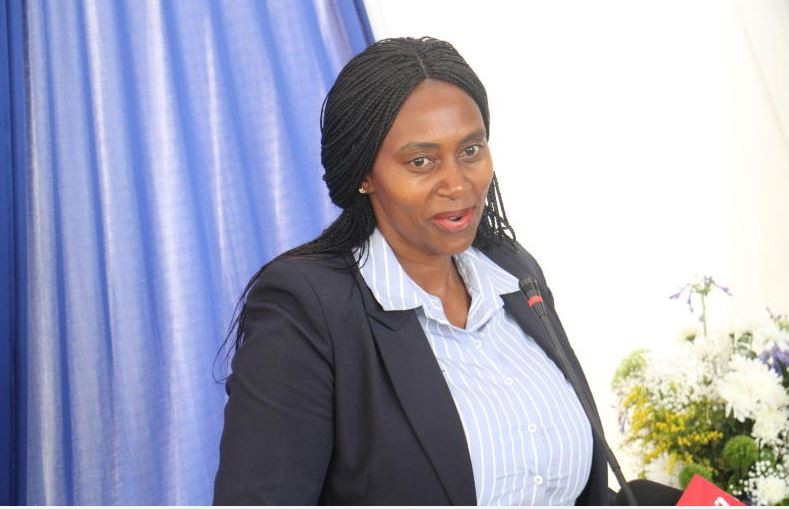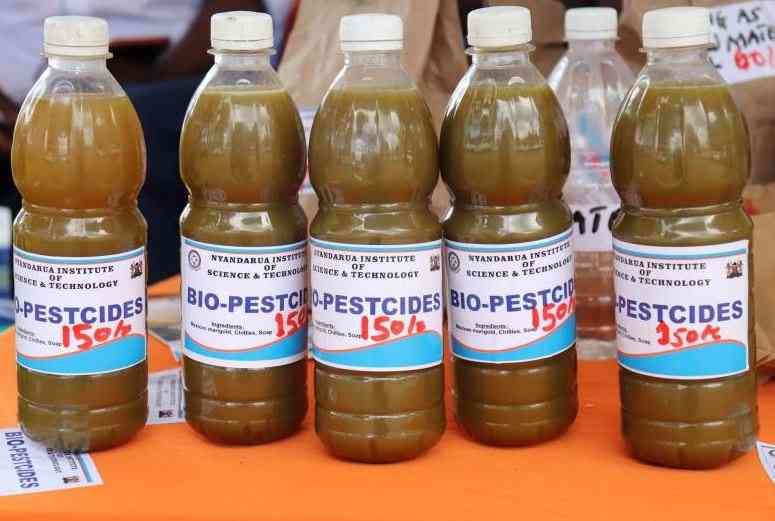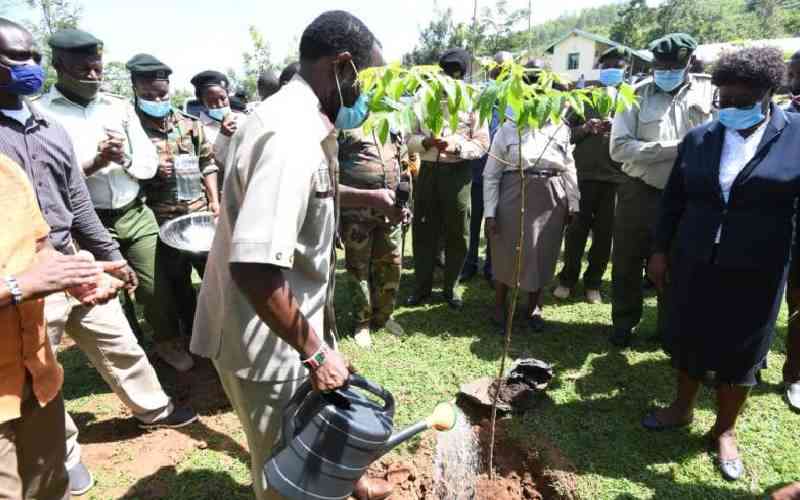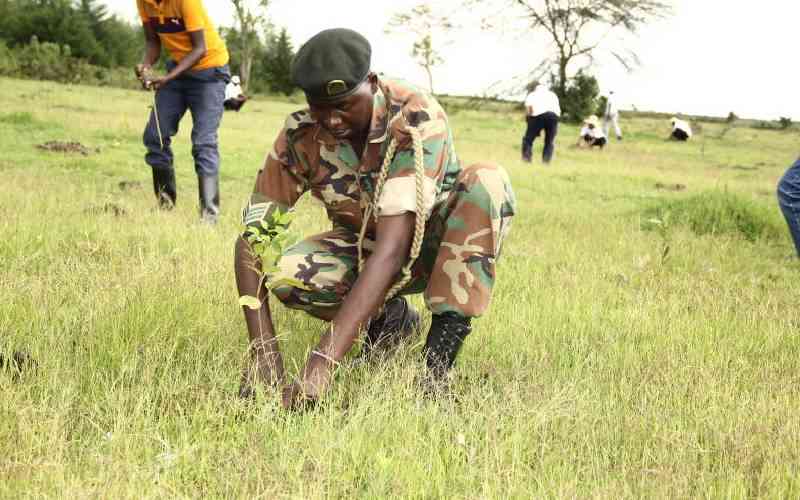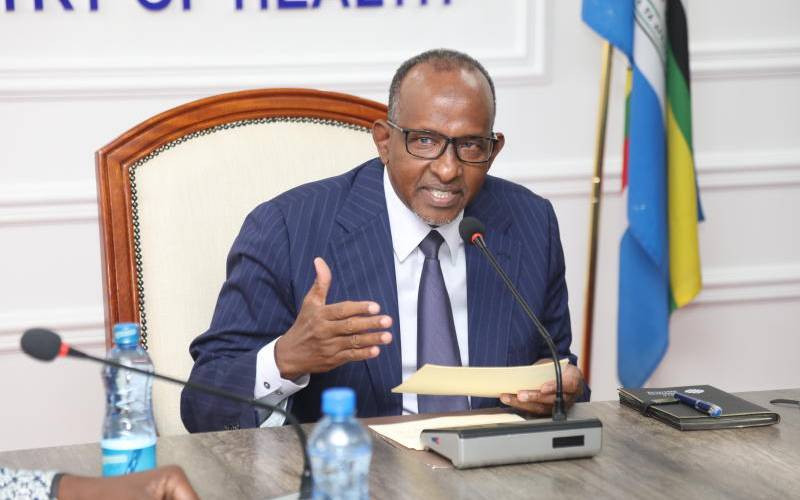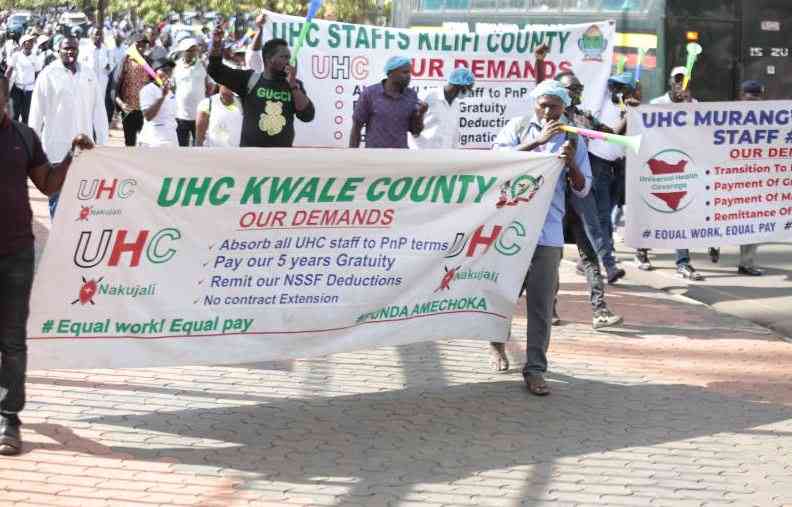
A survey conducted across multiple counties by medical experts and healthcare workers reveals that many people do not visit doctors' clinics for medical consultations, examinations or laboratory tests to determine their ailments.
One major reason for this is the high cost of medical consultation fees, which many find prohibitive. As a result a huge number of sick people opt to buy medication over the counter from pharmacies and chemists whenever they feel unwell. This practice, known as self medication, is highly dangerous and can lead to serious health risks, including drug resistance and even death.
Self-medication refers to the act of acquiring and taking medicines without a doctor's prescription. Research conducted in 40 counties in Kenya indicates that many people rely on self-medication for treatment. According to doctors, this practice is unlikely to decline unless the public receives thorough education about its dangers-whether involving herbal remedies, natural herbs, or conventional medicine.
"The danger remains the same. The public must learn the rational use of medicine," says a medical expert from the Pharmacy and Poisons Board (PPB), who spoke on condition of anonymity. According to the pharmacist, self-medication has become a part of daily life.
Every Friday, young women in their 20s and 30s flock to pharmacies to buy emergency contraceptive pills like Postinor-2, while men buy performance-enhancing pills-both without consulting a medical professional. The contraceptive pill is intended to prevent pregnancy, but its misuse without medical guidance can have serious health implications.
Similarly, many people rush to buy anti-malarial drugs whenever they travel to rural areas, feel fatigued, or experience headaches-often without undergoing proper tests. This is dangerous, as diseases like typhoid, dengue fever, and yellow fever share symptoms with malaria, leading to potential misdiagnosis and mistreatment.
It is not only conventional medicines that are being misused-herbal medicines are also widely abused, and their impact on health cannot be ignored. In a EurekAlert publication, Prof Elvin Levis, a microbiology and ethnobotany expert at Washington University in St Louis, warns that people are consuming concoctions they know little about in a desperate attempt to treat ailments such as the flu, common cold, Covid-19, and other conditions. Many also take herbal mixtures they believe can boost energy and strengthen the immune system. She notes that self-medication has been on the rise in recent years. He cautions that many individuals fail to realise the serious health risks associated with this practice, which in some cases can even lead to death.
Medical experts highlight several dangers of self-medication, including allergic reactions, internal organ damage, adverse effects on fetal development, and drug resistance. Observers warn that medications taken during pregnancy or breastfeeding should always be prescribed by a doctor to prevent harm to the unborn baby.
Additionally, self-medication can mask or conceal symptoms that doctors rely on for accurate diagnosis, potentially leading to misdiagnosis and improper treatment.
The potential toxicities and side effects of modern medicines are well-documented, making it crucial for people to avoid self-medication at all costs. However, when it comes to herbal medicine, adverse effects often go unreported due to the widespread misconception that herbs and traditional remedies are inherently safe. This belief-that "natural is safe"-is misleading and potentially dangerous.
Take, for example, Ginseng. Despite its global popularity for boosting energy, enhancing immunity, and increasing libido, Prof Elvin Levis notes that researchers have yet to fully analyze its bioactive properties. "No one knows exactly how it works in the body," she warns. "Anyone considering herbal medicine must be well-informed and not rely on unfounded claims. They should also disclose this information to their physicians."
To ensure patient safety, healthcare professionals-including doctors, nurses, and paramedics-must actively ask patients about any medicines, including herbal remedies, that they may be taking.
A Pharmacy and Poisons Board official stresses the importance of counseling patients and educating the public on the appropriate use of medications to prevent harmful health outcomes.
 The Standard Group Plc is a multi-media organization with investments in media
platforms spanning newspaper print
operations, television, radio broadcasting, digital and online services. The
Standard Group is recognized as a
leading multi-media house in Kenya with a key influence in matters of national
and international interest.
The Standard Group Plc is a multi-media organization with investments in media
platforms spanning newspaper print
operations, television, radio broadcasting, digital and online services. The
Standard Group is recognized as a
leading multi-media house in Kenya with a key influence in matters of national
and international interest.

